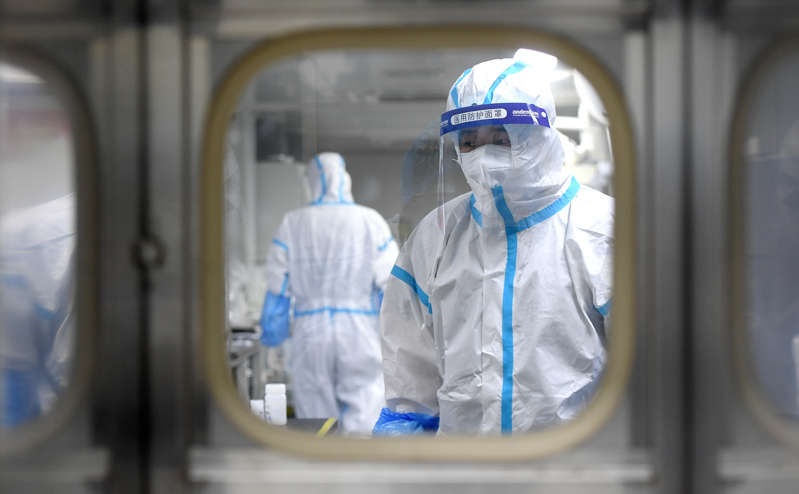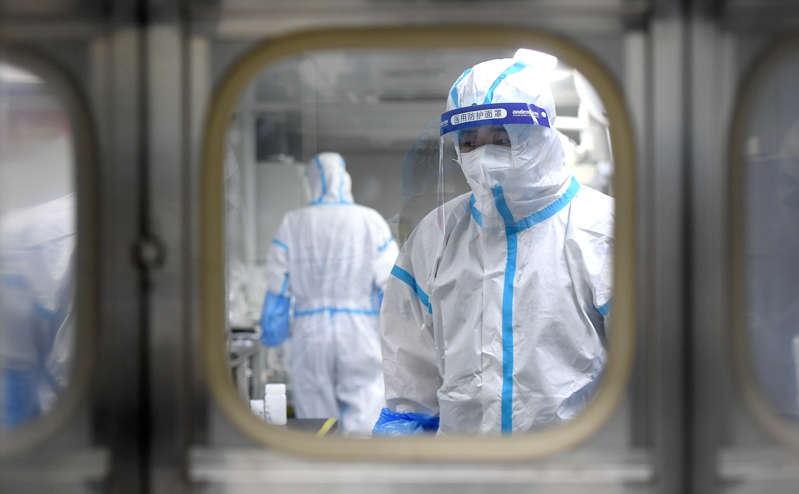
Experts interviewed by RBC assessed the conclusions of German scientists from the Max Planck Institute on the ability of the SARS-CoV-2 coronavirus to cause serious complications with the eyes.
Vaccine specialist, director of the center of the Global Virological Network Konstantin Chumakov noted that the article of scientists has not yet been reviewed. However, in their findings, according to Chumakov, there is nothing surprising, since the coronavirus is capable of infecting not only the lungs and respiratory tract, but also the kidneys and the nervous system.
“After the acute phase, when it would seem that the person has recovered, many have such consequences, which include fogginess of consciousness, inability to focus. People feel unhealthy for a very long time, it is not surprising that this can also affect the eyes, because the eyes are part of the nervous system, ”the expert explained.
The peculiarity of the virus is that it attaches to the ACE2 (angiotensin converting enzyme 2) receptor, which regulates blood pressure and performs many other functions. “The receptor is found on the cells of very different organs, ranging from the lungs, the walls of blood vessels, and the kidneys. Therefore, the virus can enter the cells of very different organs and create a lot of disorder there. This disease is much more insidious than it seems at first glance, “Chumakov noted.
Doctor of Biological Sciences, Professor of the School of Systems Biology at George Mason University Ancha Baranova told RBC that according to the state of the cornea of the eye of a person who has undergone COVID-19, it is possible to determine the “severity of post-covid symptoms”, that is, to understand how badly the body has been affected. “There is a way to measure the density of nerve endings in the cornea. Because if it is damaged in the cornea, it also suffered in the legs, and the heart also suffered. This is an objective diagnostic criterion for the severity of postcoid syndrome, ”she said.
The preprint of the study by German scientists was published on October 12 on the bioRxiv portal. As part of the study, experts came to the conclusion that the coronavirus can enter the eyes and infect the photoreceptors and nerve cells of the retina. The authors also found that antibodies that block the ACE2 protein reduce retinal cell infection.
In July, the virologist, professor at Moscow State University, Doctor of Biological Sciences Alexei Agranovsky told RBC that after the transferred coronavirus, blood clots can form in the vessels, including in the eye, so it is possible that spots appear in front of the eyes, deterioration of vision as symptoms.
In February, British doctors reported the first case of permanent cortical blindness in a 54-year-old woman who contracted the coronavirus. It developed after a long stay of the patient in intensive care and the syndrome of posterior reversible encephalopathy. Natalya Pshenichnaya, deputy director for clinical and analytical work of the Central Research Institute of Epidemiology, Rospotrebnadzor, called this case unique. She suggested that the patient might have had a stroke associated with hemodynamic disturbances (impaired blood flow) or that the clinical sign was caused by the manifestation of encephalopathy (dystrophic damage to the brain tissue).


